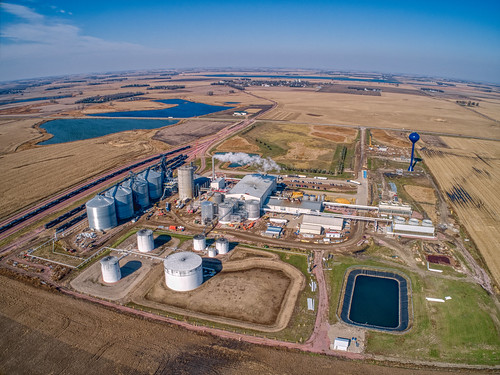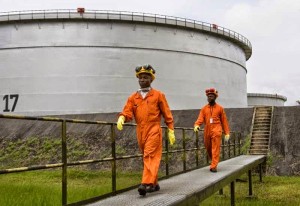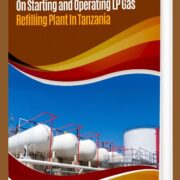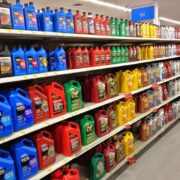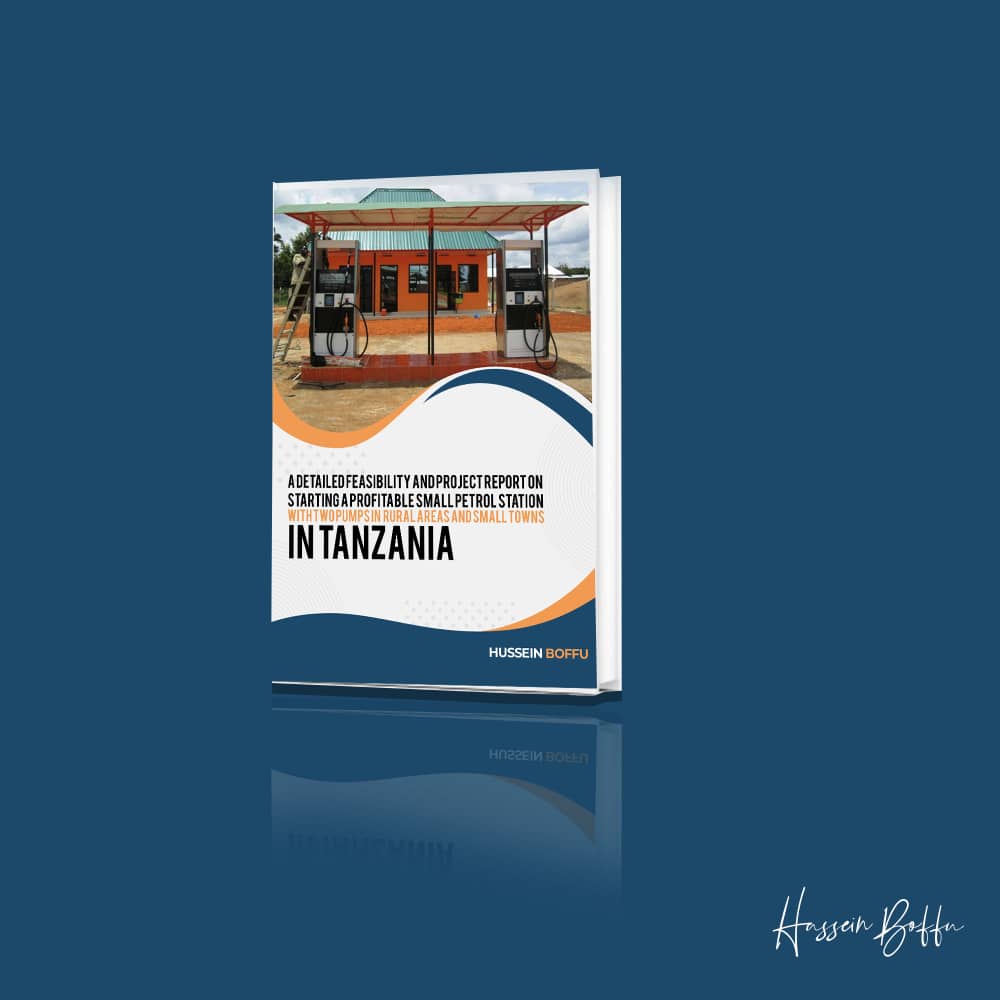35 Ways to Create Value In the Oil and Gas Sector in Tanzania and East Africa
Are you an entrepreneur looking to create value in the oil and gas industry?
I want to say our people (Tanzanians and East Africans) are backbenchers because of the lack of sufficient knowledge on how to create value in the oil and gas industry.
We aren’t in a position to say that what can do to make us be paid in the oil and gas industry?
At Tanzania Petroleum, we want to ensure access to knowledge and resources for entrepreneurs and professionals. In order to help them make good investment decisions, prepare their capacities to create massive value in the oil and gas industry. And enriching lives with meaning, fulfillment and happiness.
Here are 35 ways to create value on the oil and gas value chain
1. Crude Oil Refinery
Tanzania import millions of litres of refined petroleum products annually.
Setting up your own petroleum refinery will reduce the amount of petroleum products imported into the country. It will also improve availability of the petroleum products in the country.
Petroleum refinery business is a lucrative but capital intensive. The total investment cost for setting up a refinery in Tanzania is approximately USD 120,500,000.
And it can generate you an income of USD 260,000 on daily basis..
So, your refinery will be equipped not only to attract wholesale and retail customers of petroleum products in Tanzania but also to be able to sell the products to neighboring landlocked countries like Rwanda, Burundi , Zambia, DR Congo, etc.
2. Bulk Oil Operation
Bulk Petroleum operation is . To go in this line of business, you might need to invest in infrastructures such trucks or oil storage depot, strategically needs to consider buying equipment such as trucks or tanks ,, oil storage depots and chain of petrol station. According to our research the total investment cost for this project is approximately USD 8-15 depending on capacity of your facility.
3.Oil and Gas Mediator
Oil and gas companies often make deals with equipment and/or service providers, and whenever they do this, the intermediary earns a handsome commission for every successful transaction carried out. The disadvantages of this business model is minimal because it requires next to no startup capital. All you need are contacts of customers in the industry for whom to serve as intermediary and reputable vendor.
4. Maintenance and Servicing
This is another profitable business because oil and gas companies have many facilities including depots, gas plants, tank farms, power plans, gas wells. So, they will always need to fix and maintain them.
And that is where you come in.
However, and most importantly, you need sufficient technical knowledge and you have to assemble a strong team of service engineers and technicians to fully satisfy your clients.
5. Human Resources (Manpower Management)
Companies in the oil and gas industry are busy with operations and productions such as drilling, extracting etc. They want to focus on their core business and that’s why hiring a recruitment agency will save time and hassles with hiring workers.
Bear in mind that companies in the industry hire many people when they have new projects. So, to stand out in this business, you need keep abreast of what new project is forthcoming in the industry and be the first person to approach the clients for manpower management services.
6. Consulting
While many consulting firm in Tanzania and East Africa focus on engineering and project consulting, there is a gap in the market in need of providing guidance, support and resources for the investors who own or want to start a business in this industry.
So, you fill this gap by starting your own consulting firm, consulting and providing business support for the people who want to build a sustainable business in the oil and gas industry. This business is ideal for people who don’t have a huge capital to venture into an expensive oil and gas business but have in depth knowledge of the oil and gas industry.
7. Products (Fuel) Haulage and Logistics
Due to the increasing demand for petroleum products in East African countries, transportation of these products (for example, premium motor spirit (PMS), diesel, kerosene, and other petroleum products) has opened a lucrative investment opportunity for entrepreneurs. This business is about using fuel tankers (trucks) to distribute petroleum products with transport charges depending on the distance to be covered and the capacity of the truck.
You will have to obtain a license from EWURA to be allowed to transport fuel across the country or to neighboring countries. You will have to purchase a truck and hire a qualified and experienced driver who will haul petroleum products for marketers from depot to their desired destination.
I would recommend you start with transporting petroleum products from depots to filling stations locally across the country. As your business expands, you can acquire a new license to transit fuel to neighboring countries such as Uganda, Kenya, Rwanda and Congo DRC.
8. Gas Retailing/Distribution
Cooking gas or LPG distribution is one of the most profitable oil and gas business opportunities. Yes, it demands medium scale capital investment. You also need to have proper licensing from the relevant government agency. Also, the market for cooking gas distribution is increasing.
9. Build a Website
The website should focus on the oil and gas industry. Do reviews, interviews and write original content. Monetize your traffic through advertisements, referrals and affiliate programs.
10. Start a Petrol Station
If you’re brainstorming in order to find a perfect business idea in Tanzania and East African oil and gas sector, investing your cash in the petrol filling station business is a wise decision.
This business ensures steady profit in a reasonable time from setting up. You might feel the market is already flooded, but you can come in and have a go at it. Petrol stations are in every street corner because they make insane profit.
Don’t get me wrong. I am not saying this to brag. Instead, I am telling you this because I’ve carried out solid research. So, I can confidently tell you that this is one of the right business opportunities to pursue.
The filling station market emerged in tandem with the automobile industry.
Most important is the emerging mode of transportation. There are tricycles or “boda-boda,” as everyone calls it, and it has increased the demand for petroleum products in Tanzania. The good news is that, all these vehicles and generators run on diesels or petrol.
With petrol station in every street corner, you might feel the market is already saturated. But with a good location, commercial expertise, systematic marketing and a wide range of services, new entrepreneurs like you can win the competition in this business.
11. Online Fuel Delivery
In the era of booming eCommerce industry, online fuel delivery is definitely a lucrative opportunity for the energy-preneurs. However, the business demands right strategic planning and operating procedure. In addition to that, you have to put a substantial initial investment. It is advisable to start with an operation within a single city. And after getting the sufficient confidence, expand the business.
12.Oil and Gas News
You can make money sharing news and information on latest developments, investment ideas, petroleum business challenges, entrepreneur interviews, etc. through online and offline means such as blogging, publishing periodic magazines, creating an oil and gas job portal, starting TV shows targeting the oil and gas sector and lots more. This is a perfect online oil and gas business for everyone.
13.Oil and Gas Brokerage Services
Even if you have no money to venture into the oil and gas business, you can still profit from the industry by offering brokerage services between buyers and sellers of petroleum products.
14.. Start a TV Show Production
You can also launch a TV show targeting the oil and gas sector. You can profile and interview entrepreneurs in the oil sector, review the challenges in the petroleum sector, etc.
15. Blogging on Oil and Gas-Related Issues
Another easy-to-start business in the oil and gas value chain is to start blogging on oil and gas-related issues. It is interesting to note that there are loads of people out there who are making millions annually from blogging. If you are an oil and gas professional or someone who has sound knowledge in the oil and gas industry, one of the businesses that you can consider starting is to start blogging on oil and gas related subjects. The truth is that if your blog has useful and helpful content, you will attract loads of traffic and if you have loads of traffic on your blog, you can easily secure good advertising deals from stakeholders and other businesses in your blog. Just ensure that you update your blog regularly and you will continue to attract traffic.
16. Publication of Oil and Gas Magazine
Another of the several businesses is to start publishing oil and gas magazines. Information is key in any industry and all you need to do to be able to gain ground with this type of business is to ensure that you have relevant contents in your magazine per time. Part of the information that you should make available in your oil and gas magazine are the various business opportunities in the oil and gas industry, the latest trends, news and information as it relates to the industry, and advisory services to investors who are looking towards investing in the oil and gas industry.
17. Lubrication Oil Retail Shop
Selling egine oil, brake fluid and hydraulic oil et al. is a profitable and highly thriving business venture an entrepreneur who is interested in making money from the oil and gas business value chain should consider. The fact that vehicle owners subject their vehicles to servicing at regular intervals creates a market for lubrication oil products. In recent times, there is an increase in the lubrication oil production sector as it is one business you can readily go into with the hope of making great profit. The various needs of lube oils in homes, organizations, factories and industries just cannot be overemphasized because the population of people who have mechanical need for oil have continued to increase over the years. So, for you to start out in this trade, have an expert carry out good feasibility studies.
18. Start Manufacturing Cooking Gas Cylinders
Another profitable and thriving oil and gas-related business that an entrepreneur who is looking towards investing in the industry should consider starting is to go into the manufacturing of cooking gas cylinders. There is indeed a large market for cooking gas cylinder. As a matter of fact, households no longer rely on just one cylinder; they prefer to have one or more backups. This is indeed a capital intensive kind of business. It also requires loads of expertise to be able to stay afloat in this type of business.
19. Start a Filling Station Construction/Building Company
Another lucrative business in the oil and gas business value chain that an entrepreneur should consider starting is filling station construction/building company. It is important to state that you can only successfully start this type of business only if you have the required training, experience and technical skills. The fact that investors are investing in filling station business means that there will always be a market for engineers who are into the construction of filling stations.
20. Go into the Retailing and Supply of Pumping Machines
If you have visited a gas station/filling station before, you will notice that the means of retailing fuel, diesel, gas and kerosene et al. is via a well calibrated pumping machine. This goes to show that there is a market for pumping machines.
21. Health and Safety Trainings for Oil and Gas Workers
Another thriving and profitable business in the value chain is health and safety training for oil and gas workers. If you have the required background (experience and qualifications) to train on health and safety, then you should consider starting an organization that trains oil and gas personnel. In point of fact, health and safety is taken seriously in the oil and gas industry simply because of the risk and hazard that workers in the industry are subjected to in a bid to carrying out their jobs.
22. Manufacturing and Sale of Oil and Gas Machines and Equipment
Manufacturing and sale of oil and gas machines and equipment is yet another thriving and profitable oil and gas related business that an investor who is looking towards starting a business in the industry should consider. Oil drilling and exploration equipment, pumping machines, casing and pipe stacking and handling equipment, pumps, slush, oil and gas rig, gauges and meters, valves, actuators, regulators, cranes and lifting equipment, hazardous area electrical equipment and several other equipment and machines are marketable. So, if you are looking for a business to start in the oil and gas industry, then one of your options is to go into the manufacturing and sale of oil and gas machines and equipment.
23. Welding Services for Oil and Gas Companies
Another profitable and thriving business in the oil and gas industry that an entrepreneur who is looking towards starting a business in the industry can successfully start after acquiring the required training is to offer welding services. Welding is one of the services that are needed in the oil and gas industry to deliver precision welding jobs. So, if you are looking for a business to start in the oil and gas industry, then one of your options is to provide welding services for oil and gas companies.
24. Oil Farm/Depot
Imported fuel as stated above are stored in tank farms. Most oil marketers don’t own tank farms and, as a result, always need to store their petroleum products in other tank farms. With a large operating capital, you can construct a tank farm for the sole purpose of leasing it out to oil marketers who bring in petroleum products.
25.Open a Training School/Institution
There are very few colleges and universities that offer specialized training in the oil and gas sector. Starting an institute focused on the oil and gas industry is a good idea. Choose a niche, hire trained instructors, lease property and provide a robust curriculum.
26. Sell Equipment
The oil and gas industry uses lots of machinery to carry out their activities. You can buy or fabricate equipment targeted at a sector. The business is lucrative and requires lots of investment in money, technical knowledge and testing.
27. Supplying Safety Equipment
Every sector of the oil and gas industry needs lots of safety equipment. Safety is a major concern and a priority in the business. The companies need to buy equipment regularly. This is where your company comes into the picture. You can buy safety gears from major manufacturers and supply companies in the industry.
28. Insurance
The industry is very hazardous so they need proper insurance cover. You can hookup with an insurance company as a sales representative. You make money through the payment of commissions. The more insurance premiums you sell, the higher your profit.
29. Retail Kerosene
Kerosene business is profitable and has a huge market. People use kerosene to cook meals and light fires.
30.Oil and Gas Enterprise Software Application
Technology companies are equally not left out as they can build tech solutions specifically targeting the oil and gas industry, and license the software to companies in the sector.
31. Oil and Gas Exploration
Oil and Gas exploration is capital intensive and not for the faint-hearted. You need to get an exploration license or block. Exploration involves lots of demographic data, drilling and experts in exploration. You can also secure contracts from other oil companies to use your drilling equipment.
32. Cooking Gas Reseller Shop
Liquefied petroleum gas (LPG) market (popularly known as cooking gas) is expected to grow by fifty percent in the near future due to the wide adoption of LPG as a source of energy for cooking in residential areas, replacing other traditional cooking fuel such as charcoal and firewood.
The first option to go into the LP Gas business is to set up a retail shop in highbrow areas. Location is a key driver to success in starting cooking gas reseller shop. To start this LP gas business, you need at least 22 to 35 pieces of gas cylinders (preferably 15Kg and 6Kg gas cylinder), regulators and hose, and weighing scale. You will buy the cooking gas from major dealers/superdealers and resell them to households in your target location.
I often wonder how they make a profit seeing that there is intense competition in this business. But the best part is that, as the number of the household switching to this fuel increase, demand increase and more customers arise.
33. Offer Legal Services
There are legal practitioners who are well-vested in the business of oil and gas. This set of lawyers are specialized in oil and gas law, and they are making the most out of life in the industry. What they do is to offer legal advice to those in the industry who desire their services. This aspect of business opportunity in the oil and gas industry, according to findings, is a well-acknowledged service and it is a lucrative job for lawyers in the oil and gas industry, and that the job is reserved only for lawyers. So, lawyers, this is an opportunity in the oil and gas industry for you.
34. Start a Crude Oil Refinery
Tanzania import millions of tons of refined petroleum products annually. By building a crude oil refinery using limited stock feed supply in Tanzania, you will not only reduce the amount of petroleum products import in the country but also cater to the booming consumer demand by providing Tanzanians with affordable petrol, diesel, jet fuel and other petroleum products.
Setting up a crude oil refinery requires a huge startup capital, but it is very profitable business if you can pull up resources to start this business.
35. Host Industry Events and Conferences
If you don’t have the massive capital to venture into those expensive oil and gas businesses but you have passion for the oil and gas industry, you may consider putting together industry events and help professionals and companies learn about new development across the industry and build relationship that are valuable for career and business development.
If your event can attract relevant decision makers in the industry, you will make handsome money from attendees and sponsorship from companies who are looking for visibility and exposure across the oil and gas industry.


